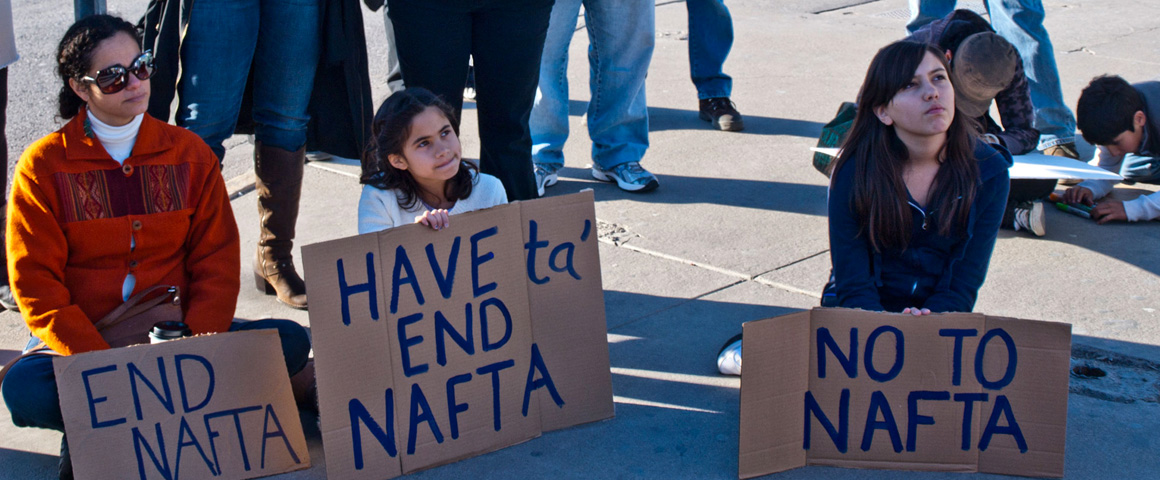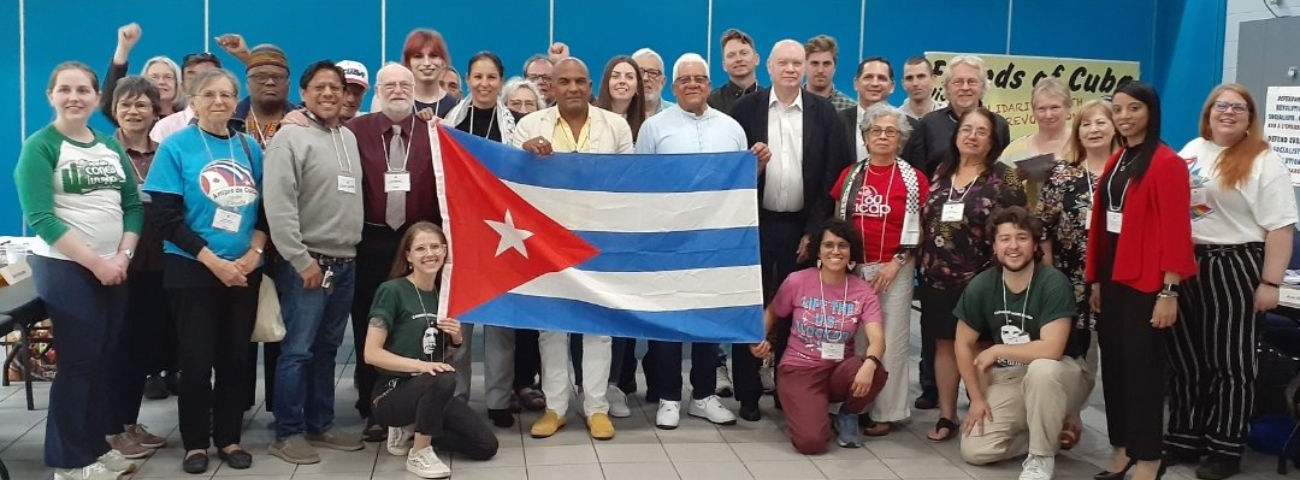The arrival of US President Donald Trump on the international stage, backed by an army of trade negotiators, has raised the alarm among Canadians, and with good reason.
More than half a million workers lost their jobs in manufacturing and secondary industry after Canada signed onto NAFTA in 1994. Real wages and living standards fell, as good jobs were replaced by part-time, temporary, and precarious work. As permanent employment disappeared, many unemployed workers were driven to accept to low wages and multiple jobs.
The Canadian economy was undermined by the elimination of whole sections of work, including textiles, clothing and footwear, furniture and appliances, farm equipment, and big reductions in forestry, and in the steel and auto sectors.
In Quebec the auto assembly and parts have virtually disappeared, while in Ontario, tens of thousands of jobs have disappeared in the parts sector, and some in assembly with plant closures in Oshawa, Windsor, St. Thomas and St. Catharines. Auto is the beating heart of the Canadian economy, which Donald Trump could be aiming to take out in his drive to “make America great again” – at the expense of Canadian and Mexican workers.
Some think that renegotiating NAFTA would improve Canada’s position in the continental, or even global trade hierarchy. But that conclusion would be faulty, and dangerous. Why? Because there is nothing good about NAFTA, and there never was. It was a corporate deal, foisted onto Canadian workers with the help of the ever-ready Brian Mulroney, for the benefit of the largest Canadian and US based transnational corporations and their drive to increase profits at any cost. NAFTA took down borders and regulations that stood in their way, undermined national sovereignty and independence, and helped prepare publicly owned assets and services for privatization or reincarnation as P3s.
NAFTA contained the first Investor State Dispute Settlement mechanism in its Chapter 11, which allowed corporations to sue governments over loss of existing and future profits. As a direct consequence, Canada is the most sued country in the world, losing every dispute to the US, and paying millions in fines.
NAFTA helped to secure massive corporate tax cuts over two decades, and put significant obstacles in the way of labour, civil and democratic rights.
NAFTA opened up communities to virtually unlimited access by multi-national corporations like US Steel (Hamilton), Caterpillar (London) and others. By giving capital “the run of the house” , NAFTA also provided the legal basis for great damage to the environment and to Indigenous communities. NAFTA was the mechanism for transforming Canada’s economy away from value added industry and manufacturing, towards resource extraction and exports, from energy resources and minerals to Great Lakes water.
In the early ‘90s, progressives knew that the deal posed a great threat to Canada. They knew that NAFTA should be rejected, that it could not be amended in any satisfactory way, that it was intended to serve corporate interests, not public or democratic interests, or the concerns of women or labour, or Indigenous Peoples, or environmentalists.
Yet efforts were made to force governments to build in protections for the environment, for Medicare, for Canadian culture, for workers. for Indigenous Peoples. But as we have seen, and as has been widely acknowledged, the safeguards added were weak and ineffective.
When Trump comes calling to renegotiate NAFTA, It will not be to help bolster Canada’s position. He will look for measures to strip Canada’s softwood lumber industry of any government supports, which the US asserts are subsidies, and to benefit the softwood lumber industry in the northwest USA.
Trump will come to re-open the Keystone XL pipeline deal, as the first of other pipelines still to come. He will advise us that climate change is a hoax, and that he will roll back Obama’s climate change commitments.
Trump will come calling to open up Medicare to for-profit healthcare corporations who see Canada as a huge new market for private healthcare insurance.
He will come calling to tell carmakers and investors about the right-to-work legislation and further tax cuts he plans to introduce, and the red tape he will strike down, alongside the new national infrastructure he will build to serve corporations and profit-making.
The only benefit to come from renegotiating NAFTA will go to the 1%, the owners of the biggest corporations in the world, operating in Canada, the US and Mexico.
Progressive people said NO in 1994, and we must say NO again. Fair trade, not free trade – means GET OUT OF NAFTA NOW!
Fair trade means mutually beneficial, and multi-lateral trade with all countries, and long-term credits to the developing countries and to the socialist countries. Fair trade also requires a foreign policy of peace and disarmament, investment in peaceful development, and civilian spending.




